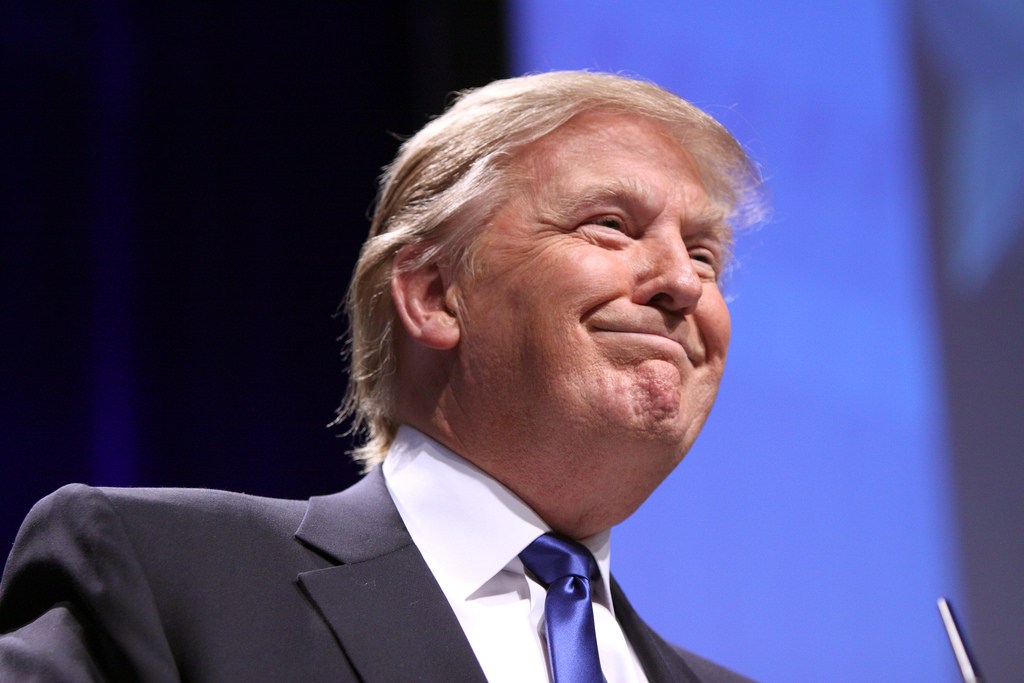ProPublica recently took a look at the Emoluments Clause, the provision of the Constitution which seems to ban payments from foreign countries to Donald Trump’s businesses once he becomes president unless Congress consents. But at least one scholar, whose work we inadvertently overlooked, insists that the clause does not apply to presidents, vice presidents or members of Congress.
Professor Seth Barrett Tillman, a lecturer in law at the National University of Ireland Maynooth, bases his argument, which appeared in more accessible form in a New York Times Room for Debate feature in November and much earlier in scholarly form, including this article in the Northwestern University Law Review, makes two principal arguments. First, he notes that George Washington accepted two gifts from French officials while president without seeking congressional consent. Second, Tillman says that a list of office holders prepared by Secretary of the Treasury Alexander Hamilton for the Senate during the 2nd Congress, and which excluded elected officials such as the president, vice president and members of Congress, establishes that such officials were not intended to come within the Emoluments Clause’s scope.
This story originally appeared in ProPublica.
But Tillman’s case appears considerably weaker than he believes, and practice over the last 185 years is surely to the contrary.
The first of the Washington gifts, the key to the Bastille liberated in the early days of the French Revolution, came from the Marquis de Lafayette. It is true that Lafayette was an official of the revolutionary National Assembly at the time he sent the keys to Washington in 1790. But it is also true that Lafayette was a very close personal friend and former aide of Washington’s, and the gift might have been construed as personal rather than official. In transmitting the key, Lafayette described it as “a tribute Which I owe as A Son to My Adoptive father, as an aid de Camp to My General, as a Missionary of liberty to its patriarch.” Washington does not seem ever to have commented on his interpretation of the Emoluments Clause, and Tillman infers his interpretation from Washington’s silence.
The second gift, a print after an oil portrait of King Louis XVI, was given to Washington by the French ambassador to the U.S., also a former Washington military aide, in 1791. This, particularly in its elaborate frame, was more clearly an official gift. But Washington displayed it in his official residence, a public building, during his term of office, so he may not have considered the gift personal to him at that time. He did take the print home to Mount Vernon when he retired in 1797, but by that time Louis had long since been executed (1793) and his regime replaced by the French First Republic, so it might have been thought the Emoluments Clause no longer applied to the portrait 2014 again, Washington never said. To be sure, as Tillman notes, Washington’s early practices are often given considerable weight in understanding the intended scope of presidential power under the Constitution, but much more so when his intent is clear to us, which in these cases it cannot be.
In 1792, the Senate asked Hamilton for a list of everyone holding “any civil office or employment under the United States (except the judges).” Tillman makes much of Hamilton’s omission of elected federal officials from the list he submitted in response. But the Emoluments Clause uses a considerably different phrase in describing who it covers: its terms apply to anyone “holding any office of profit or trust under the United States.” In omitting the president from his list, Hamilton could have decided that the presidency met the latter test but not the former. Again, he never said.
In any event, presidents starting with Andrew Jackson, our seventh president, in 1830, have sought congressional approval for the acceptance of gifts under the Emoluments Clause. As Tillman himself notes, Martin Van Buren, president No. 8, and John Tyler, No. 10, also looked to Congress in these circumstances. All of the modern presidents’ attorneys general who considered the matter opined implicitly or explicitly that the president was bound by the Clause, most recently in an opinion regarding President Obama’s receipt of the Nobel Peace Prize. Tillman insists that all of them are wrong.
Beyond that, since at least the early 20th Century, Congress has passed laws regulating the receipt of small gifts from foreign countries of the sort we now frequently see in presidential museums. The most recent of these laws, the Foreign Gifts and Decorations Act, is half a century old. If the framers did not intend for the Emoluments Clause on foreign gifts to apply to the president, it would seem to follow, on basic separation of powers principles, that the Congress would not have the power to legislate in this area, at least with respect to the president. If that is true, the Foreign Gifts and Decorations Act, which the last nine presidents have observed, was and is actually unconstitutional as applied to them.
If Trump, in his announcement originally scheduled for Dec. 15, does not sell his businesses altogether, or retains a residual interest in the revenues those businesses receive from foreign governments and foreign government entities, the debate between those who may decide to agree with Tillman and those who disagree could come quickly to the fore. Congress seems very unlikely to consent to a complex set of Trump business deals with foreign powers and their affiliates 2014 especially as Trump’s refusal to release his tax returns makes it almost impossible to understand the scope of these relationships.
The new president would then face a choice about whether to declare himself the first chief executive in at least 185 years, and perhaps the first in our history, exempt from this provision of our Constitution. The alternative could be to subject himself to possible impeachment.
ProPublica is a Pulitzer Prize-winning investigative newsroom. Sign up for their newsletter.






















